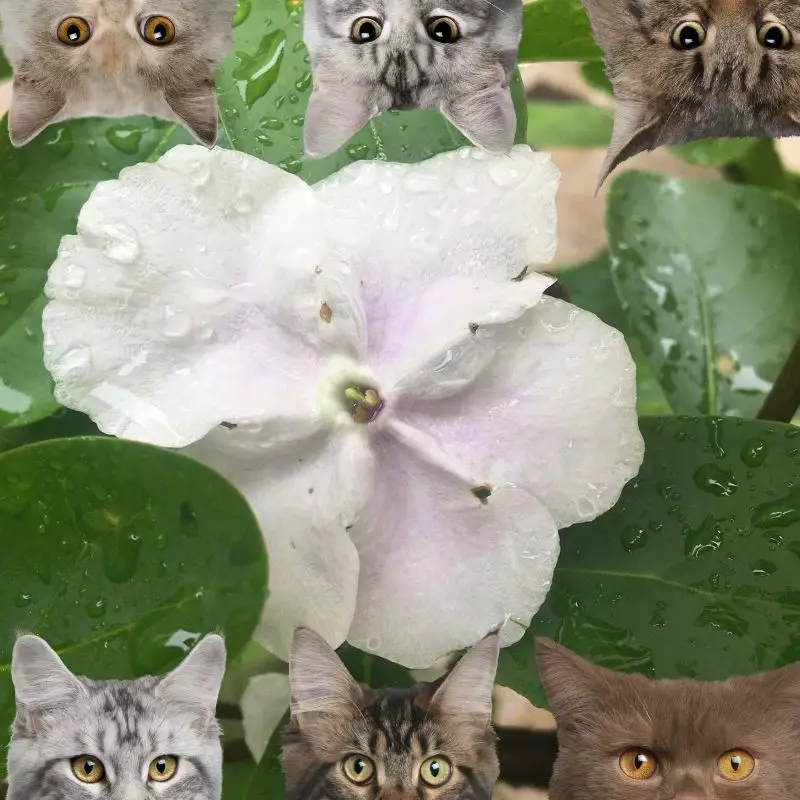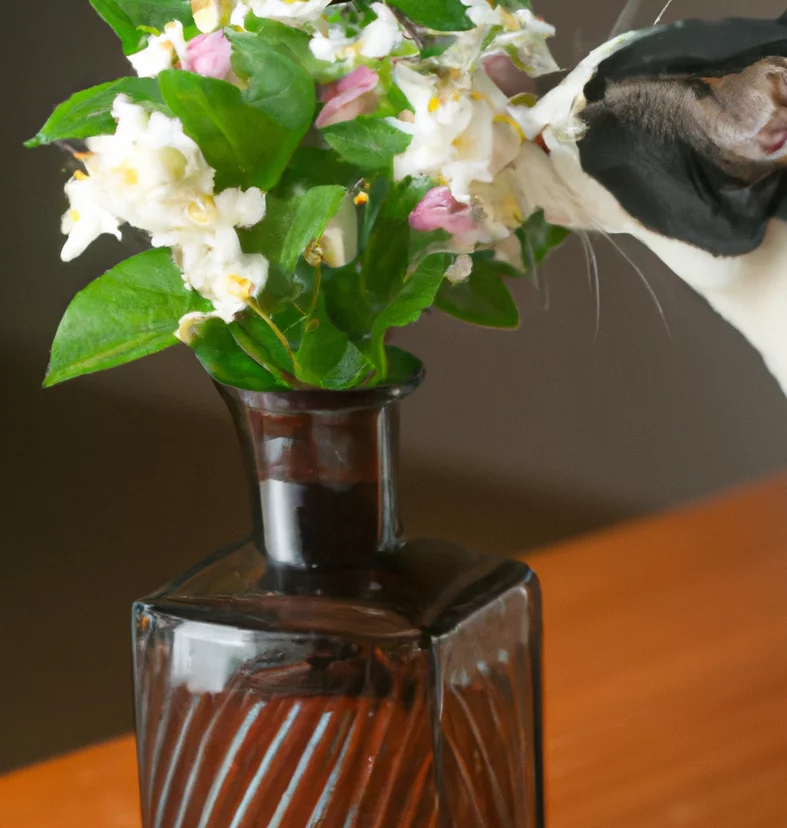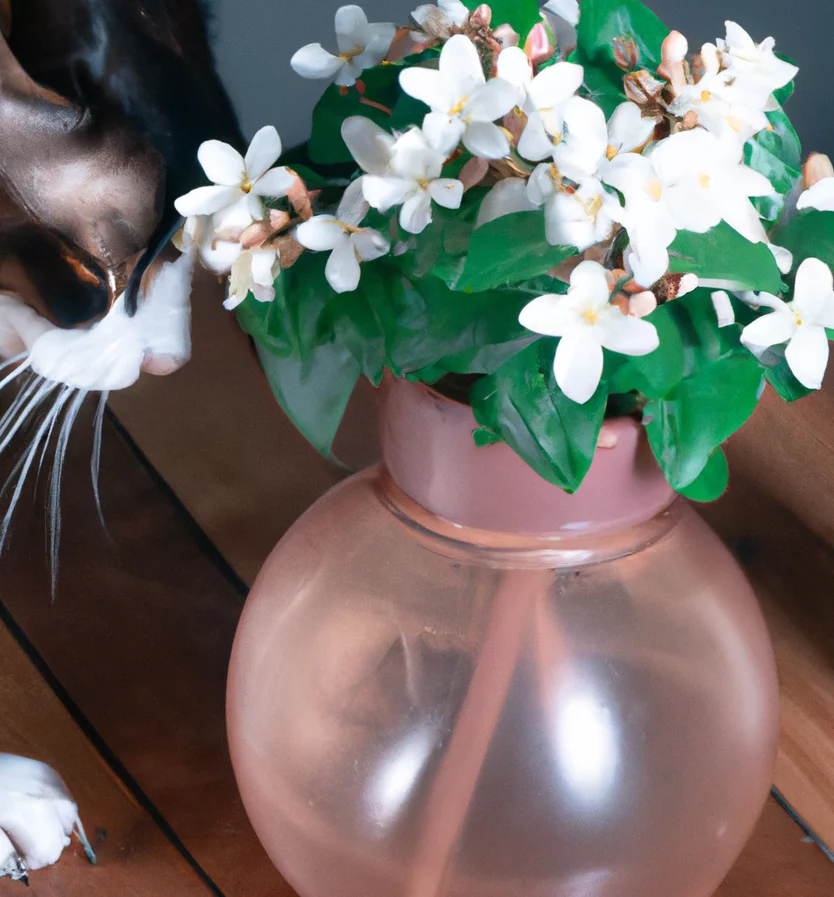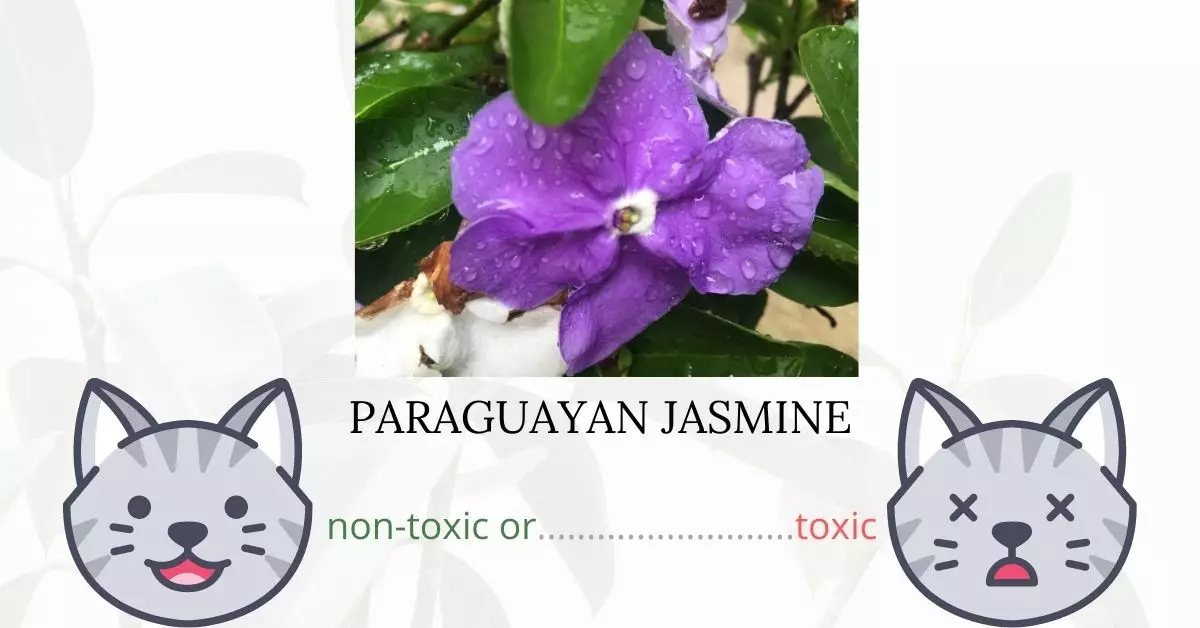Yes, Paraguayan Jasmine is toxic to cats. This article was written in collaboration with a team of experienced DVMs (doctors of veterinary medicine). Through their expert guidance, we provide accurate and up-to-date information about the potential risks of various plants, with a specific focus on Paraguayan Jasmine and its effects on cats. Additionally, we have extensively researched high-authority websites such as ASPCA and PetMD to ensure the accuracy of the information provided.
Brunfelsamindines and hopeanines are two toxic compounds found in Paraguayan Jasmine. These toxins can be detected throughout the plant, with concentrations varying by part. While the leaves, flowers, and stems have relatively lower quantities making them less hazardous, the berries possess higher levels of these harmful chemicals and are thus more dangerous. Incidences of poisoning from this plant are rare; however, its toxicity can be severe, potentially even lethal. The toxins in Paraguayan Jasmine behave similarly to strychnine, disrupting neurotransmitters and adversely affecting the nervous system.
Clinical Signs of Paraguayan Jasmine Poisoning in Cats

When a cat comes into contact with, ingests, or even just smells the Paraguayan Jasmine plant, they may exhibit a range of symptoms, which are caused by the toxic compounds, brunfelsamindines and hopeanines, found in the plant. Here’s a breakdown of the symptoms and why they might occur:
- Tremors and Twitching: Caused by the disruption of neurotransmitters affecting the nervous system. The toxins behave similarly to strychnine, leading to uncontrolled muscle contractions.
- Seizures: Resulting from the toxins’ severe impact on the brain and nervous system, leading to over-excitability of nerve cells.
- Diarrhea and Vomiting: Gastrointestinal upset is a common response to the ingestion of toxic substances. The body tries to expel the harmful chemicals.
- Ataxia and Staggering: A loss of coordination and balance due to the effects of the toxins on the brain and spinal cord.
- Lethargy: The toxins may cause a decrease in energy levels, making the cat feel weak and uninterested in activities.
- Disorientation: A direct effect of the toxins on the cat’s cognition, impairing its sense of direction and awareness.
- Rapid Breathing: Caused by the body’s response to try and expel the toxins and increase oxygenation.
- Sneezing, Coughing, and Gagging: Inhalation or contact with the plant can irritate the respiratory tract, leading to these symptoms.
- Proprioceptive Deficits: Difficulty in perceiving the environment and understanding spatial orientation, again due to the toxins’ effect on the nervous system.
- Hyperthermia and Hypothermia: The toxins can disrupt the body’s temperature regulation mechanisms, leading to elevated or lowered body temperatures.
- Vocalization: An expression of discomfort or pain as a result of the poisoning.
Early detection and treatment of these symptoms are crucial. If a cat displays any of these signs after being in contact with Paraguayan Jasmine, it’s essential to seek veterinary care immediately.
First Aid and Treatment of Paraguayan Jasmine Poisoning in Cats

The veterinarian may induce vomiting and administer chemicals in combination with medication to cause defecation. Gastric lavage may also be used to remove as much of the plant as possible from your cat’s system.
Supportive care for symptoms of the central nervous system will be provided. Intravenous fluid therapy will be established to hydrate your cat while also providing an easy route for administering intravenous medication to address nervous system disorders.
Seizures may be treated with sodium pentobarbital, diazepam, primidone, or methocarbamol. If medication does not control your cat’s seizures, he or she may be sedated or anesthetized and kept alive with isoflurane gas. If your cat develops respiratory failure, he or she may require intubation and artificial respiration. As part of the supportive treatment, corticosteroids to control inflammation and topical ophthalmic ointment to address optical stress may be used.
Recovery from Paraguayan Jasmine Poisoning in Cats

The prognosis is good if your cat received immediate medical attention and there were no renal system symptoms. To ensure your cat’s well-being while recovering at home, discuss post-treatment care with the veterinarian. Give your cat plenty of fluids to help him recover quickly. If your cat’s poisoning symptoms return, take him or her back to the vet as soon as possible.
Prevention of Paraguayan Jasmine Poisoning in Cats
Remove any Paraguayan Jasmine that is growing in your yard. To avoid exposure to Paraguayan Jasmine and other toxic plants in your area, limit your cat’s outdoor activities. It may be beneficial to construct fences and install safety nets around your home as needed.
If you love plants but have cats at home, check out these lists:





